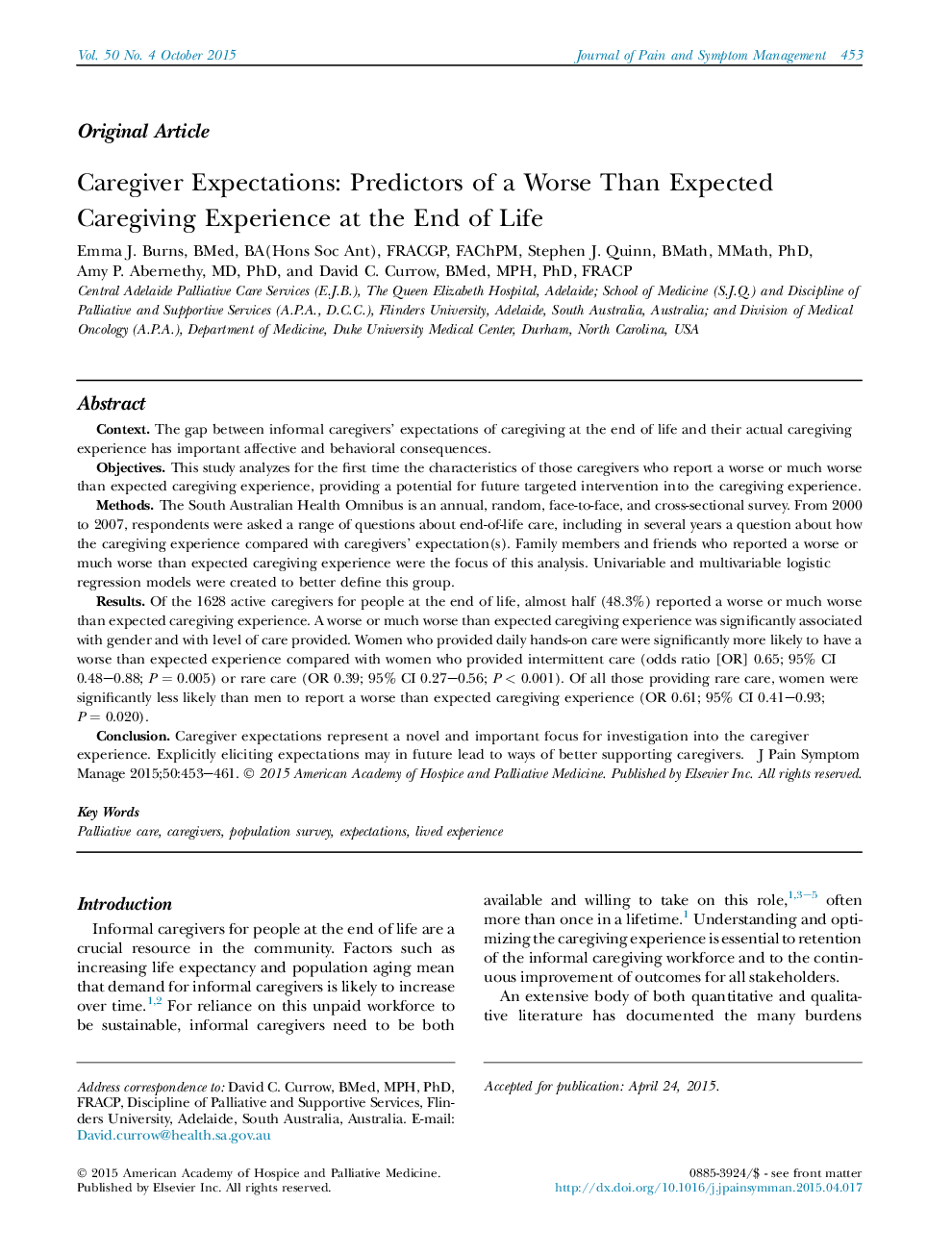| کد مقاله | کد نشریه | سال انتشار | مقاله انگلیسی | نسخه تمام متن |
|---|---|---|---|---|
| 5879647 | 1147184 | 2015 | 9 صفحه PDF | دانلود رایگان |
ContextThe gap between informal caregivers' expectations of caregiving at the end of life and their actual caregiving experience has important affective and behavioral consequences.ObjectivesThis study analyzes for the first time the characteristics of those caregivers who report a worse or much worse than expected caregiving experience, providing a potential for future targeted intervention into the caregiving experience.MethodsThe South Australian Health Omnibus is an annual, random, face-to-face, and cross-sectional survey. From 2000 to 2007, respondents were asked a range of questions about end-of-life care, including in several years a question about how the caregiving experience compared with caregivers' expectation(s). Family members and friends who reported a worse or much worse than expected caregiving experience were the focus of this analysis. Univariable and multivariable logistic regression models were created to better define this group.ResultsOf the 1628 active caregivers for people at the end of life, almost half (48.3%) reported a worse or much worse than expected caregiving experience. A worse or much worse than expected caregiving experience was significantly associated with gender and with level of care provided. Women who provided daily hands-on care were significantly more likely to have a worse than expected experience compared with women who provided intermittent care (odds ratio [OR] 0.65; 95% CI 0.48-0.88; PÂ =Â 0.005) or rare care (OR 0.39; 95% CI 0.27-0.56; PÂ <Â 0.001). Of all those providing rare care, women were significantly less likely than men to report a worse than expected caregiving experience (OR 0.61; 95% CI 0.41-0.93; PÂ =Â 0.020).ConclusionCaregiver expectations represent a novel and important focus for investigation into the caregiver experience. Explicitly eliciting expectations may in future lead to ways of better supporting caregivers.
Journal: Journal of Pain and Symptom Management - Volume 50, Issue 4, October 2015, Pages 453-461
